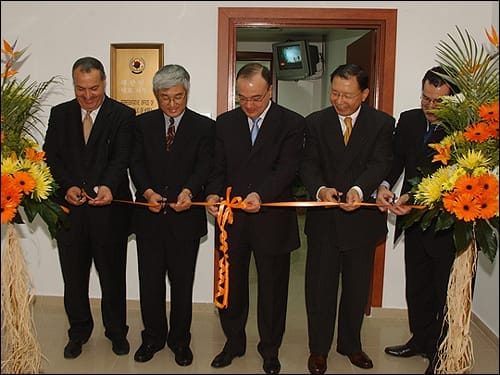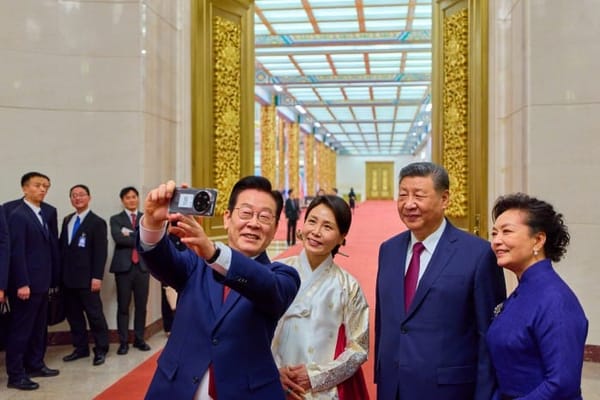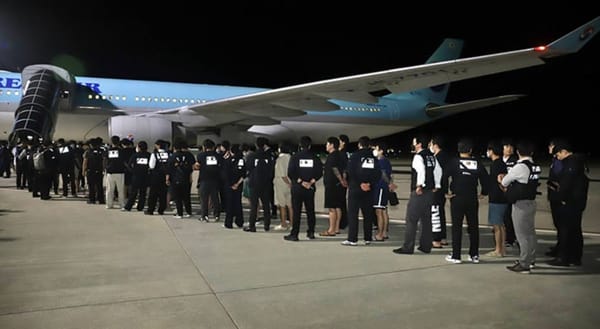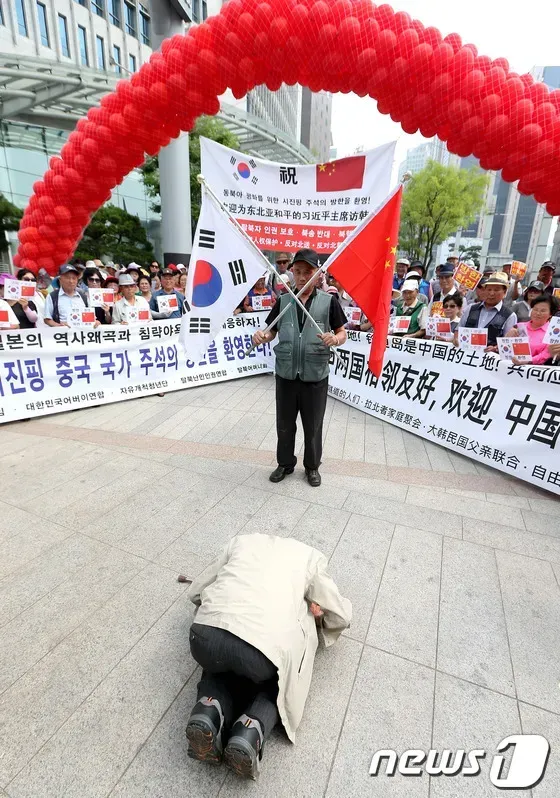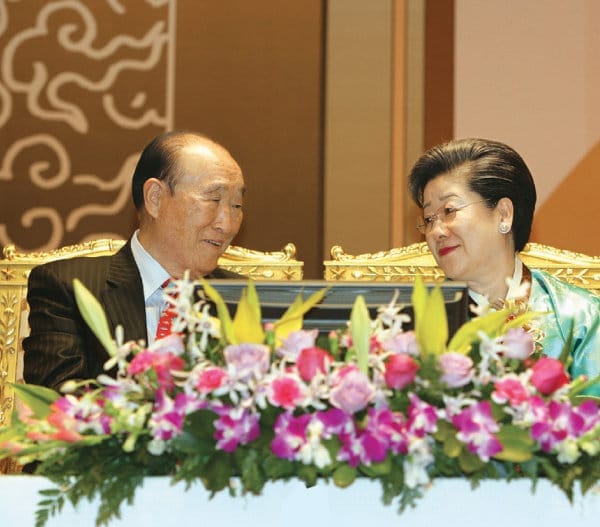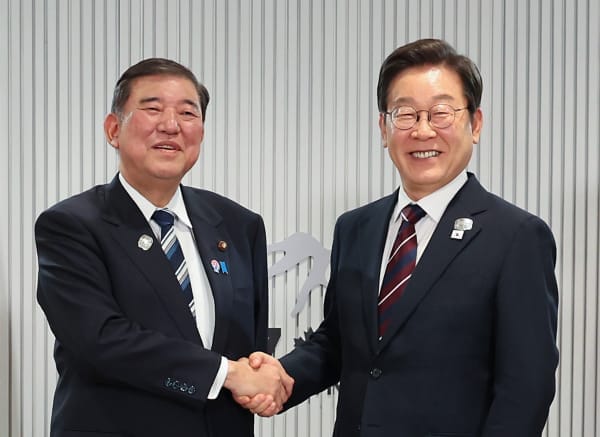Photo: Ribbon-cutting ceremony for South Korea's Representative Office in Palestine, c. 2005. Credit: Ministry of Foreign Affairs.
South Korea has approached the Israel-Palestine conflict largely in the same fashion as the rest of its Middle East policy: seeking mercantilist advantages while avoiding entanglement. (See Starter Kit, “South Korea and the Middle East.”) Although South Korea historically had a closer relationship with Israel, recent events in both the Middle East and within South Korea have caused Koreans to be more distanced.
Seoul and Tel Aviv established diplomatic relations in 1948, the year when both countries established their respective modern governments. South Korea and Israel developed a strong relationship, as both countries were established as post-World War II, anti-communist client states of the United States. The parallel experience of early war in its existence, and the garrison state and nationalism that emerged in response, made the two countries a reference point for each other in state-building.
Nevertheless, South Korea maintained a calibrated distance with Israel in consideration of its relationship with other Middle Eastern states such as Saudi Arabia, Iran and the United Arab Emirates. Although South Korea has not recognized Palestine statehood, the Foreign Ministry 외교부 has had a Representative Office in Ramallah since 2005, and formally supports the two-state solution.
When South Korea entered into a free trade agreement with Israel in 2019, Seoul insisted on carving out Gaza and the West Bank from the FTA’s scope, consistent with its stance of respecting the United Nation’s 1967 resolution calling for Tel Aviv to withdraw from the territories claimed from the Six Day War. In 2024, South Korea voted in favor of the United Nations resolution to permit Palestine to join the United Nations.
Korean attitudes toward the intensified conflict since the October 3, 2023 Hamas attack have tracked this history. In a survey by Hankook Research conducted in October 2023, a slight majority of Koreans (53%) said the conflict was an important issue for them. In a follow-up survey conducted a year later, 43% considered the conflict to be an important issue. In the more recent survey, 25% blamed Israel for prolonging the war, 19% blamed Hamas, while 41% placed the blame on both.
Support for Israel within South Korea tends to be a partisan issue. In the 2023 survey, conservatives and Evangelical Christians tended to sympathize more with Israelis, while liberals and Buddhists tended to sympathize more with Palestinians. South Korea’s far-right has had strong ties with the far-right in the United States, with Evangelical Christians of the two countries acting as a conduit. (See previous coverage, “The Global Brain Rot Community.”)
This, in turn, has translated to South Korean right-wing support for Israel, to a point where the Israeli flag has become a common sight in right-wing street rallies in Seoul. Liberals, on the other hand, repulsed both by the right’s attempt to end democracy in South Korea and by Israel’s indiscriminate killings in Gaza, are becoming cooler toward Israel and more sympathetic with Palestinians.


